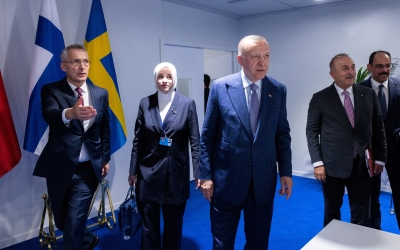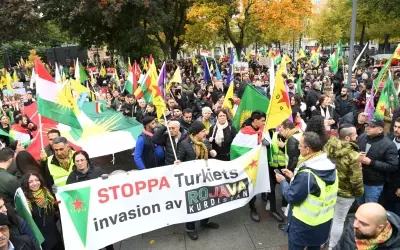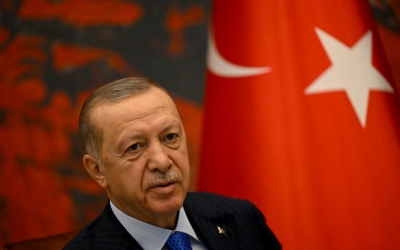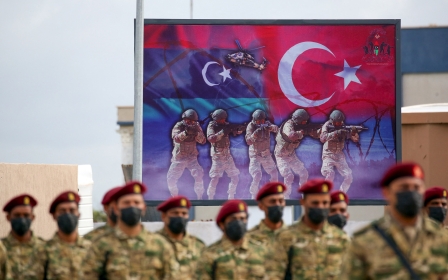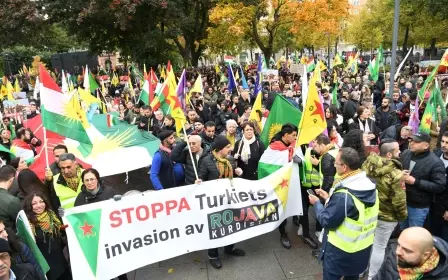Erdogan says Sweden must do more to unlock Turkey’s veto on Nato
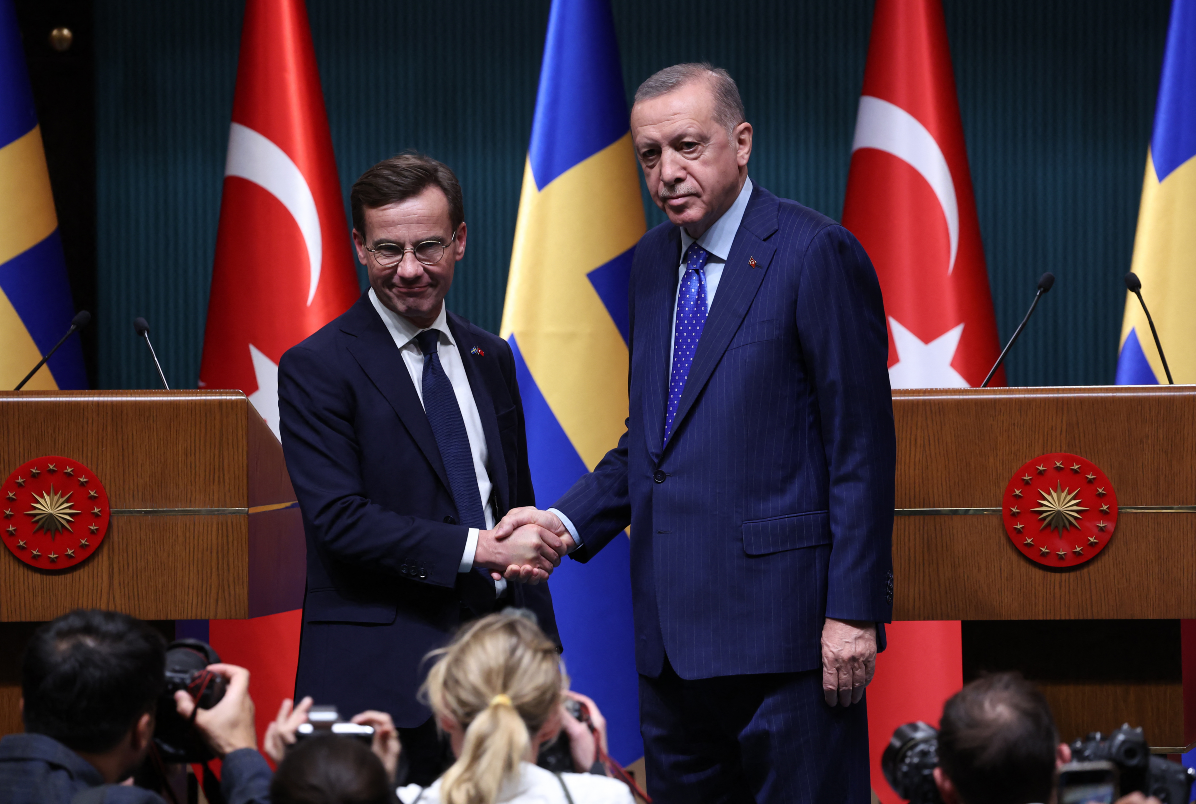
Turkey’s President Recep Tayyip Erdogan said he expects to see “concrete steps” taken by Sweden towards Ankara’s security concerns before dropping his opposition to the Nordic country’s bid to join Nato.
Both Sweden and Finland, who long maintained a position of neutrality and military non-alignment, have sought to join Nato in the wake of Russia's invasion of Ukraine.
Turkey has stalled the Nordic countries' requests to join the alliance over accusations that they are providing a safe haven to the outlawed Kurdistan Workers Party (PKK) and other groups linked to them.
“Sweden wants Nato membership for its own security, and we want a Sweden that will support eliminating our security concerns,” Erdogan said at a joint press conference in Ankara on Tuesday, following his meeting with Swedish Prime Minister Ulf Kristersson.
“It is our sincere wish that Sweden realise Nato membership, following full implementation of the memorandum.”
'Distance ourselves'
Turkey is seeking the extradition of 33 individuals linked to Kurdish groups it considers “terrorists”. A memorandum in June spelled out steps for Sweden and Finland to take to address Ankara’s concerns and facilitate its extradition requests.
Following the agreement, Sweden and Finland reversed a ban against exporting military equipment to Turkey that had been imposed in 2019 after Turkey invaded northern Syria, a move Erdogan welcomed on Tuesday.
Sweden has faced opposition from rights groups and Kurdish organisations, including a large diaspora inside the country, on extraditing Kurdish opposition figures.
But in a sign that Sweden is moving in Ankara’s direction, the foreign minister said on Saturday that Stockholm needed to "distance" itself from the Kurdish People's Protection Units (YPG) and the Democratic Union Party (PYD) because of their links to the PKK.
"I think it is important that there is a distance to this organisation from the Swedish side," Sweden's Foreign Minister Tobias Billstrom told broadcaster Sveriges Radio.
"We think there are doubts and problems regarding those who are damaging our relationship with Turkey.”
"There is too close a link between these organisations and the PKK, which is a terrorist organisation listed by the EU," Billstrom said.
The comments are noteworthy because the YPG remains a key US ally in the fight against the Islamic State group, although the US designates the PKK as a terrorist organisation.
“I want to reassure all Turks, Sweden will live up to all the obligations made to Turkey in countering the terrorist threat before becoming a member of Nato and as a future ally,” Kristersson said.
Sweden has so far authorised one extradition for fraud, though Erdogan said that four people had already been deported to Turkey. Both Stockholm and Helsinki say that extradition decisions are made by the courts.
Moving parts
“Terrorist organisations’ exploitation of Sweden’s democratic environment must absolutely be prevented,” Erdogan said Tuesday. “When our citizens see these terrorists walking the avenues of Sweden and Finland with terrorist rags in their hands, they hold me to account.”
Turkey’s neighbours, and historic rivals, are concerned that Erdogan is seeking to leverage his Nato veto power to extract further concessions from western governments. Turkey has been involved in a war of words with Greece and it is also negotiating an F-16 purchase from the US in the face of congressional opposition to the deal.
Erdogan has positioned himself as a mediator in the Ukraine conflict, and one of the only Nato leaders who can maintain a channel of communication with Russia’s Vladimir Putin. Earlier this month, he intervened to persuade Russia to re-enter a grain export agreement.
At the same time, Turkey has deepened its economic ties with Moscow. On Tuesday, Turkey’s energy minister said the country had started paying for some of its natural gas from Russia in roubles, a step that would help bolster the currency.
Middle East Eye propose une couverture et une analyse indépendantes et incomparables du Moyen-Orient, de l’Afrique du Nord et d’autres régions du monde. Pour en savoir plus sur la reprise de ce contenu et les frais qui s’appliquent, veuillez remplir ce formulaire [en anglais]. Pour en savoir plus sur MEE, cliquez ici [en anglais].


